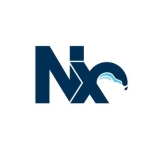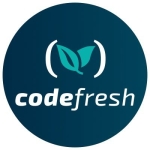I generally find TeamCity a lot more intuitive than Jenkins.
Moving to TeamCity from Jenkins
At work, we’re slowly migrating from Jenkins to TeamCity in the hope of ending some of our recurring problems with continuous integration. My use of Jenkins prior to this job has been almost strictly on a personal basis, although I pretty much only use Travis nowadays.
The biggest difference upon initial inspection is that TeamCity is far more focused on validating individual commits rather than certain types of tests. Jenkins’ front page presents information that is simply not useful in a non-linear development environment, where people are often working in vastly different directions. How many of the previous tests passed/failed is not really salient information in this kind of situation.
Running specific tests for individual commits on TeamCity is far more trivial in terms of interface complexity than Jenkins. TeamCity just involves clicking the ”…” button in the corner on any test type (although I wish it wasn’t so easy to click “Run” by accident).
I generally find TeamCity a lot more intuitive than Jenkins out of the box. There’s a point at which you feel that if you have to scour the documentation to do anything remotely complex in an application, you’re dealing with a bad interface.
One disappointing thing in both is that inter-branch merges improperly trigger e-mails to unrelated committers. I suppose it is fairly difficult to determine who to notify about failure in situations like these, though. It seems like TeamCity pulls up the first parent of the merge commit and sends the e-mail to them, when in reality it’s usually the merge author that should be getting that information. Maybe I’m just ignorant of where to find a setting to change that behaviour.
Being able to jump the queue is useful when releasing. It requires a plugin to do in a sane way in Jenkins, unless you’re willing to kick everyone else out of the queue. TeamCity can do it by default, and it’s obvious how to do so when scheduling the tests.
There are supposedly more advanced features in Jenkins that don’t exist in TeamCity (yet), but I don’t think we use them.
Disclosure: I am a real user, and this review is based on my own experience and opinions.

















The tool has very great features for CI and CD. We can setup TeamCity for builidng applications in windows and unix environments and also can setup for deployments.
TeamCity was very easy to integrate with other build tools like Ant,Nant, Msbuild and Maven and Powershell and shell to implement the automated build and deployment process.
TeamCity Publish Artifacts feature is one of the best of its available features. Using this feature, any one can deploy the code or build directly from Teamcity to any environment(dev/testing/preprod and prod).
TeamCity was a great tool and it has no limits in customization with respective to CI and CD of any organizational SCM/Release Management process.